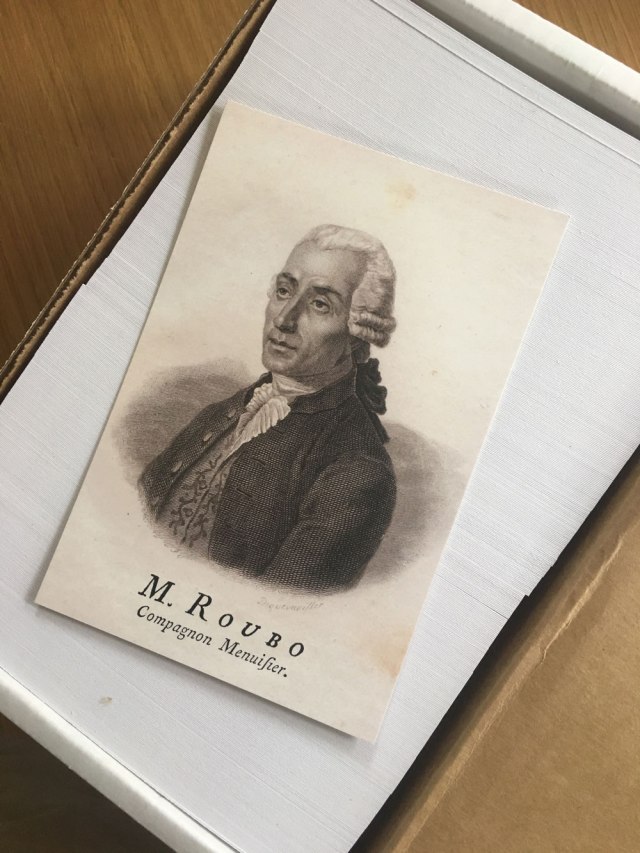
It was never supposed to happen like this, but I’m a believer in fate.
During the last seven days we have closed the books – so to speak – on two of the projects that have dogged us every day since we started this publishing company in 2007. Those projects – reviving the works of A.J. Roubo and Charles H. Hayward – have consumed the lives of more than a dozen people for almost as many years.
While I thought I would feel relief, joy or something powerful about the publication of “With All the Precision Possible: Roubo on Furniture” and “The Woodworker: The Charles H. Hayward Years Vols. I – IV,” I actually don’t feel very much on a personal level. Perhaps it has yet to sink in, but all I feel right now is gratitude to the people who signed on to these crazy projects – with no guarantee of reward – and have stuck with us for years and years.
The Charles H. Hayward project began before we even incorporated Lost Art Press in 2007. John and I wanted everyone to encounter the pure genius of Hayward and The Woodworker magazine during its heyday. And likewise, our efforts at translating Roubo’s “l’art du Menuisier” predate this company by many years.
And now we’re pretty much done. Sometime on Tuesday or Wednesday, I’ll receive a copy of “With All the Precision Possible: Roubo on Furniture” and I’ll place it next to volume IV of The Woodworker: The Charles H. Hayward Years,” and that will be that. We might publish additional translations of Roubo. And we might have additional Hayward-related material in the works. But the big job is over.
I am not one for navel-gazing, but I can tell you this: These projects have transformed me as a craftsman, writer and designer. The books are so woven into the fiber of my being that it’s impossible to overstate their influence on how I work at the bench every day.
If I had to sum it up, I’d say that I can see the world through the eyes of these great men. Both of them did something that few woodworkers do: They investigated the craft around them with open hearts and open minds. Both interviewed woodworkers of all stripes in order to communicate how to make things. They refused to accept the narrow, rote training that can easily make you an effective soldier, but a poor thinker.
If anything, these men have taught me how to evaluate the advice, admonitions, rules and exhortations of other craftsmen. To spot the closed mind. To refuse to embrace dogma.
Will you find the same things in these books? I don’t know. But the lessons are there for the taking.
— Christopher Schwarz